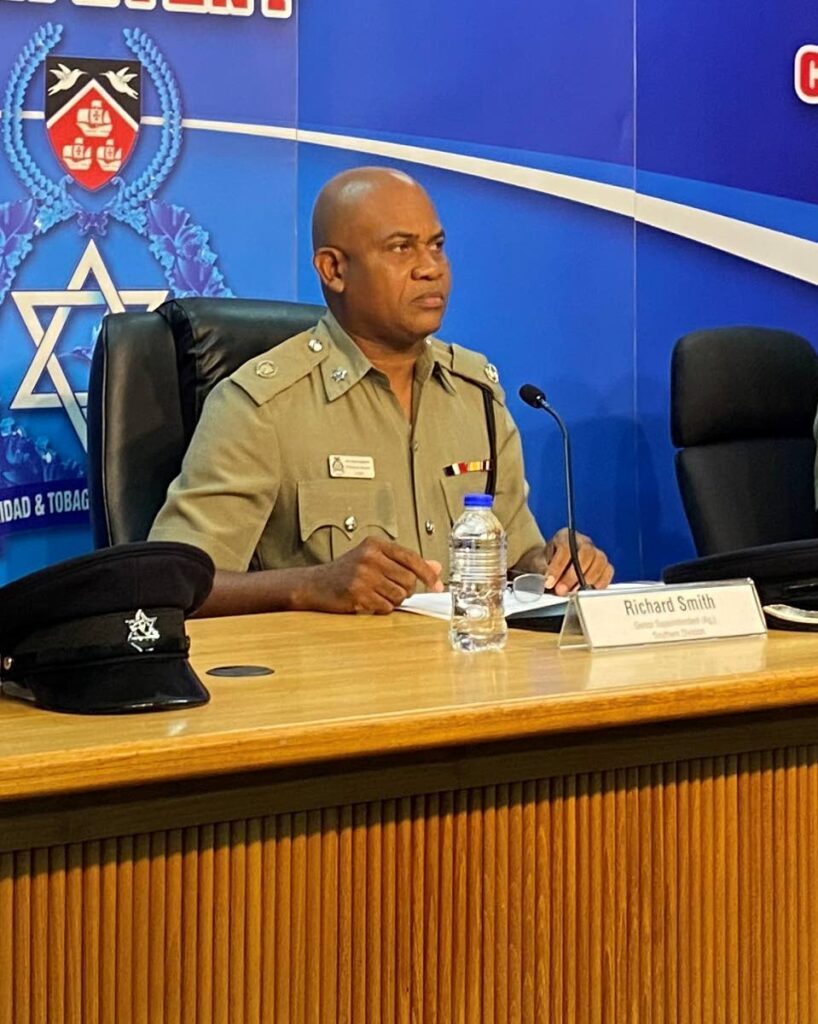North Central Division head: Prison is a university for criminals

Expressing his displeasure about court matters in which accused people get a slap on the wrist, the commander of North Central Division, Snr Supt Richard Smith, said criminals realise now that there are few consequences when they commit crimes.
He said the division holds several anti-crime exercises regularly targeting offenders, repeat offenders and people with outstanding warrants.
The police arrest and take people before the court.
“But the problem is when they reach before the court, where we have no control, we realise that the court is being quite lenient with these people. While bail is not supposed to be something to penalise them, but substantial bail should be set to keep them inside for some time,” Smith said.
He made the comments on March 27 at a Joint Select Committee (JSC) on National Security.
Smith recalled that recently, North Central Division police arrested and charged a man with three counts of robbery and three counts of larceny.
The accused was allegedly luring victims through online transactions to particular areas where he would rob them.
Smith said the accused was placed on $45,000 bail and was out the next day.
He added that many other people charged with serious crimes like robbery and for having guns get lenient bail bonds.
Smith acknowledged that sometimes, offenders go to prison.
He added: “Prison is a university where they learn more criminality to come back or do worse or even while they are in prison, they are calling shots on the outside.”
March 27’s inquiry was to gain an understanding of the anti-crime strategies implemented and being implemented to address criminal activity in Trinidad and Tobago.
The objectives were to understand short, medium and long-term strategies implemented by the police and to learn about specific measures the police take to ensure public safety.
It was also geared toward exploring strategies to combat criminality’s open brazenness and considering measures to improve detection.
JSC chairman and Port of Spain South MP Keith Scotland raised concerns about the brazenness of criminals, saying no longer are serious crimes being done under the cover of darkness.
In response, Smith said the reason they were being brazen was to send a clear message to possible witnesses — Do not come and say anything.
Smith said the division is also engaged in interdivisional exercises to identify suspects migrating from one division to another.
“We also understand that we are at the tail end of this entire process because when the family, the home, the school, and even the church have failed, they end up in our hands, the police service,” Smith said.
“This is at the tail end, where we have to prosecute them, send them to counselling, or otherwise. But we are, in fact, utilising all our resources, initiatives, and strategies to combat this scourge of crime.”
Another challenge the police face relates to gangs.
“We have several gangs throughout the country that are, in fact, involved in gang warfare for turfs and all different reasons,” Smith told the JSC.
“We even have gang warfare for music. The Trinibad music and all these things, picong throwing at each other, they have problems with that.”
Smith added that the police’s gang units and task forces nationwide are actively engaged in finding the people who are responsible for committing such crimes.
Three other divisional heads attended the inquiry.
They were Snr Supt Ryan Khan of the Eastern Division, Snr Supt Brian Soodeen of the Southern Division and Snr Supt Miguel Montichard of the Northern Division (North).
Other police who attended were Supt Terrence Nowbott, acting Supt Nigel Birch, acting ASP Ishmael Pitt and Insp Rishi Ragbir.


Comments
"North Central Division head: Prison is a university for criminals"